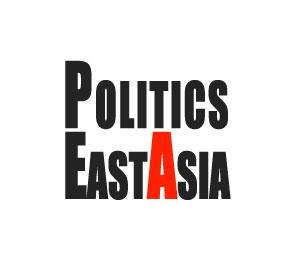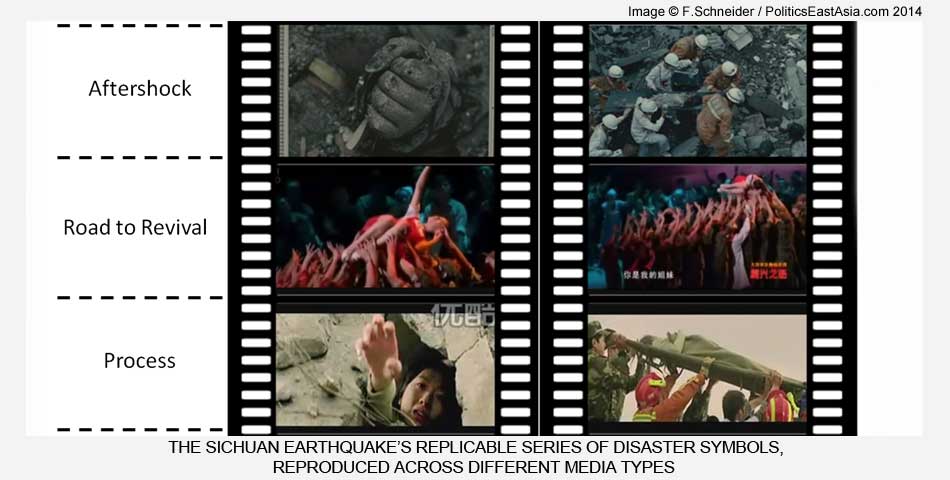The Sichuan Earthquake and the Heavenly Mandate
Legitimizing Chinese rule through disaster discourse
In the aftermath of the 2008 Sichuan earthquake, the Chinese authorities launched a major public relations campaign to relay positive images of their relief effort and strengthen their political legitimacy. The effect has been a proliferation of symbols and political statements related to the disaster, not only in the official media, but also in cultural products such as movies or mass-media events. The earthquake has become part of the discourse of suffering, struggle, solidarity, and ultimately victory.
A disaster like the Sichuan earthquake provides an opportunity for the Chinese Communist Party to retain and even enhance its legitimacy, particularly in light of the meaning that natural disasters traditionally have in Chinese politics. To the Chinese leadership, it is thus crucial to not only manage natural disasters to re-insure that its performance-based legitimacy does not wane, but more importantly, it is also essential to manage the meanings that events like earthquakes and government responses to such disasters have in popular discourse.
This article, co-authored with Jay Hwang, examines the ways in which various cultural products present the Sichuan earthquake and asks what meanings national crises have in the Chinese discourse on political legitimacy. How are the meanings of the natural disaster tied to the Chinese discourse on legitimacy, and to what extent do cultural representations of this event relay the government’s official disaster discourse? To answer this question, the article analyses two cases: Chinese film, here in the form of Feng Xiaogang’s blockbuster Aftershock, and performance-based discourses during the Beijing Olympics, the PRC’s 60-Year Anniversary, and the Shanghai Expo.
By conducting a discourse analysis, we show how the earthquake has become part of a recurring discursive formation that is used by state and non-state actors alike to legitimate China’s developmental model. Within this discourse, the leadership of the Party, the mastery of free markets, and a revamped version of the Confucian idea of benevolent rule are marshaled as the decisive factors for winning any ‘battle’.
How to reference this article
Schneider, Florian & Hwang, Yih-Jye (2014), ‘The Sichuan Earthquake and the Heavenly Mandate: Legitimizing Chinese Rule through Disaster Discourse’. Journal of Contemporary China, 23(88), 636-656.
[button text=”Article via Taylor Francis Online” link=”http://www.tandfonline.com/doi/abs/10.1080/10670564.2013.861145?queryID=%24%7BresultBean.queryID%7D#.VdiW_PmqpBd”]

